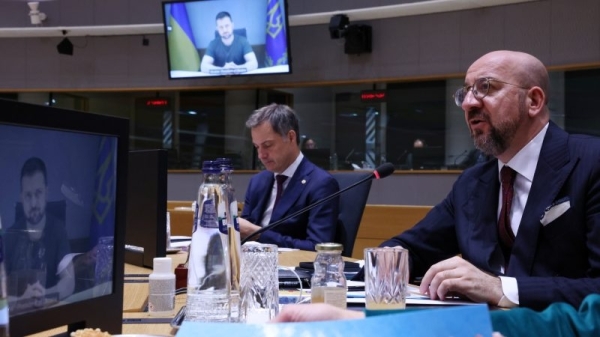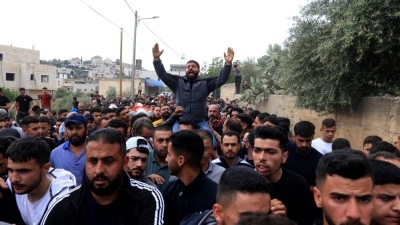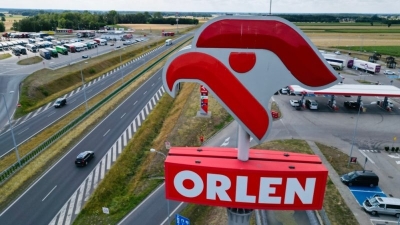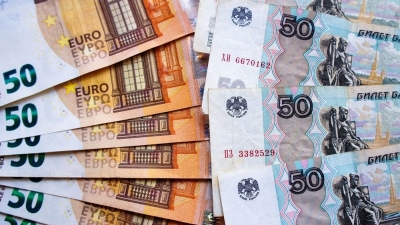EU leaders back new Iran sanctions, pledge more assistance to Ukraine

EU leaders decided on Wednesday (17 April) to step up sanctions against Iran after Tehran’s missile and drone attack on Israel and pledged more military assistance to Ukraine at a time when the country finds itself short of munitions to respond to the Russian offensive.
The summit in Brussels is the first meeting of the EU’s 27 national leaders since Saturday’s attack, more than six months into the war between Israel and the Iran-backed Palestinian militant group Hamas.
‘Full solidarity with the people of Israel’, call for ‘restraint’
“The European Council strongly and unequivocally condemns the Iranian attack on Israel and reiterates its full solidarity with the people of Israel and commitment to Israel’s security and to regional stability”, the summit Conclusions read.
EU leaders call on Iran and its proxies “to cease all attacks and urges all parties to exercise the utmost restraint and to refrain from any action that may increase tensions in the region”.
Israel has signalled it will retaliate but has not said how. EU leaders called on all sides to prevent more tensions, including in Lebanon.
“We feel it’s very important to do everything to isolate Iran,” said summit chairman Charles Michel, adding the new sanctions against the Islamic Republic would target companies involved in the production of drones and missiles.
German Chancellor Olaf Scholz said it was important that Israel “does not respond with a massive attack of its own.”
Italy spoke separately ahead of G7 talks in favour of sanctions against arms suppliers linked to the attack against Israel, as well as those behind attacks on ships in the Red Sea.
Iran launched its assault in response to an 1 April strike on its embassy in Damascus which it blamed on Israel. Tel Aviv started its broader military offensive in Gaza after Hamas’ deadly attack on Israel on 7 October.
EU foreign ministers are due to continue the sanctions work on Monday as the United States and its Western allies hope new steps against Iran will help limit any Israeli retaliation.
The EU already has multiple programmes that target Iran for human rights abuses, the proliferation of weapons of mass destruction, and Tehran’s support for Russia’s war in Ukraine.
Germany, France and several EU states are looking at expanding a scheme that seeks to curb the supply of Iranian drones to Russia to include the provision of missiles and cover deliveries to Iranian proxies in the Middle East.
Belgium backed introducing sanctions against Iran’s Revolutionary Guard Corps but Scholz said that required further legal checks. The bloc’s top diplomat has said that could only happen if a national authority in the EU found that the group had been involved in terrorist activity.
Analysts say Iran is unlikely to face more severe economic punishment because of worries about boosting oil prices and angering top buyer China.
Ukraine on back burner?
With the Middle East capturing much of the EU’s attention, Ukraine’s President Volodymyr Zelenskyy appealed for more help in holding the line against Russia, which unleashed an invasion against its neighbour more than two years ago.
“Here in Ukraine, in our part of Europe, unfortunately, we do not have the level of defence that we all saw in the Middle East a few days ago,” Zelenskyy told the summit, after Israel and allies mostly shot down the incoming drones and missiles.
"Our Ukrainian sky and the sky of our neighbours [



